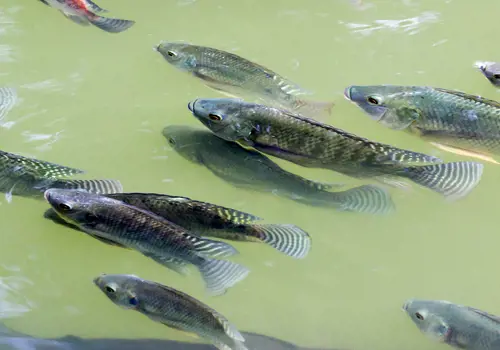
Grower
Achieve efficient and uniform growth
Overfeeding of fish
How can I reduce mortalities?
Increasing pond carrying capacity
FREQUENTLY ASKED QUESTIONS
Key questions in the grower stage
Feed your fish well, as feed quality directly impacts growth rates. Grower feeds should balance essential nutrients according to the species' needs, helping achieve optimal Feed Conversion Ratio (FCR). For example proteins in grower feeds are lower because fish have developed the ability to digest a more varied diet, and because they grow slower in percentage weight gain per day. Choosing the right feed ensures efficient growth and better results.
Check out the grower feeds assortmentSomething is wrong, but it is not always easy to establish what could be the issue. What you should do 1) Feed the fish less to prevent metabolic stress, while ensuring it still receives enough feed for recovery. 2) Sample fish that seem affected but are still alive. 3) Check water quality parameters. 4. Inspect fish behaviour. 5) Observe for disease indicators.
Contact your aqua expert to find out what is the issueExtreme weather events, such as heatwaves, cold snaps or storms, can stress fish and disrupt feeding and growth. Reduce feeding if the feeding response goes down, but maintain feeding so fish can recover from any stress. In lake systems monitor water parameters and take measures when possible in case the risk of an upwelling is high.
Read how to manage seasonality